The Portuguese language is formed by an alphabet of 26 letters. The phonemes that make up the language are classified into three categories: vowels, semivowels and consonants. The alphabet is defined as the system of representation of sounds through letters, in other words it is the set of letters arranged in conventional order that serves to guide the sounds of a language.
Phonetics is the science that aims to study the linguistic sounds produced by the organs of the vocal tract and understood by the listener. Speech sounds and words are made up of syllables and phonemes.
Spelling is the branch of grammar that analyzes the correct use and use of letters. In other words, it is the set of rules and defined usages for writing the words of a language within the same standard. It defines the set of norms that govern the language, thus establishing a correct writing model.
In the Portuguese language there are grammatical rules that help in its spelling and among them is the rule of using the letter M before P or B.
The rule for words with M before P and B defines precisely that the letter M must always be used in all Portuguese words before P and B. For example: time, berimbau, amber, ambition, ambitious, ambidextrous, ambiance, environmentalist, ambient, ambiguous, scope, ambivalence, both, ambrosia, ambulance, outpatient, support, amparo, ampere, enlargement, enlarge, enlarge, wide, ampoule, amputation, chocolates, Camboriú, champion, field, mumps, computer buyer, emperor, empress, imply, important, exchange, lamp, samba, always, too, navel and umbilical.
Thus, when the word does not have P and B, the preceding letter will be N. Example: potting, enchanting, cloaking, dirtying, finding, flooding, wedged, swallowing, restless, incomplete, disturbing, oncology, jaguar, unctuous and anointing.
Check out some tips for activities with M before P and B.
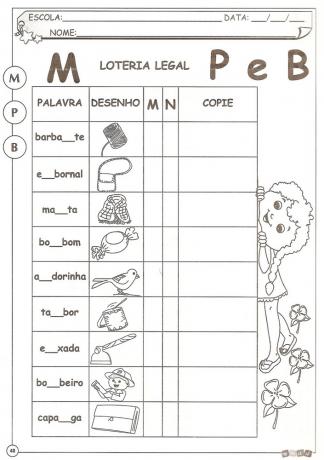
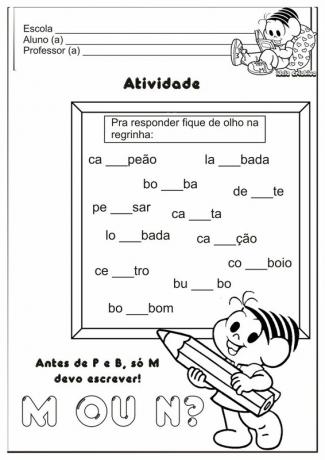





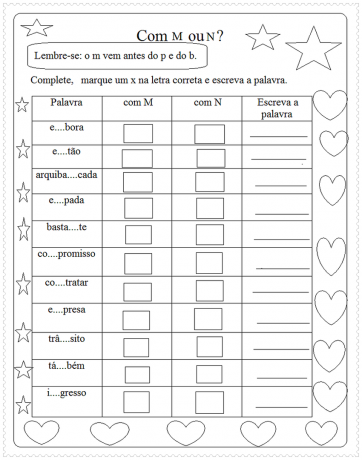
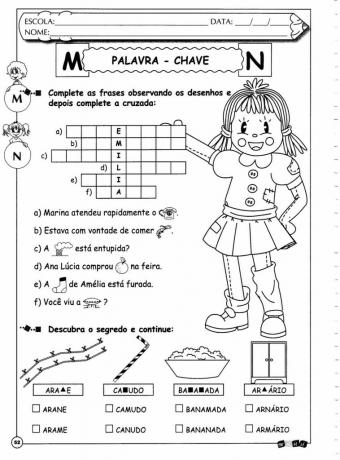
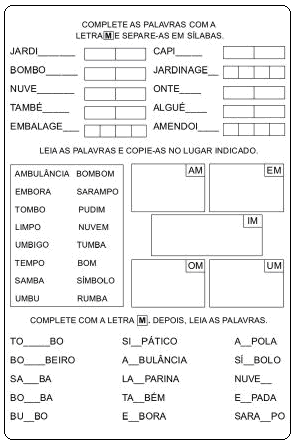
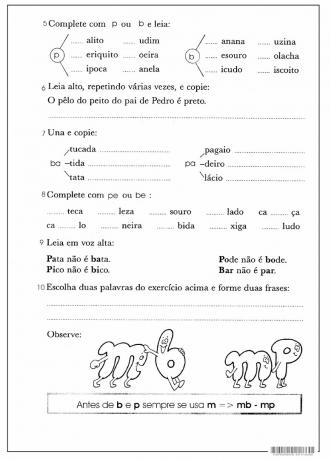

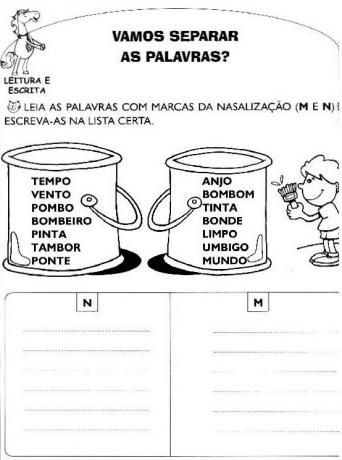


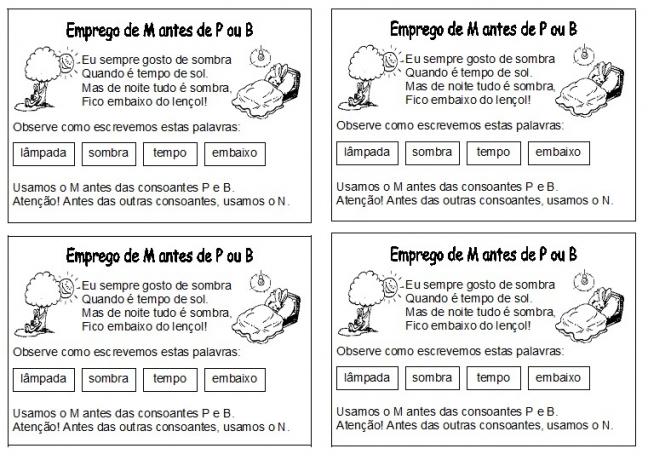
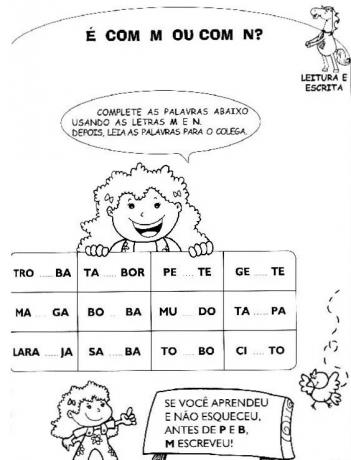
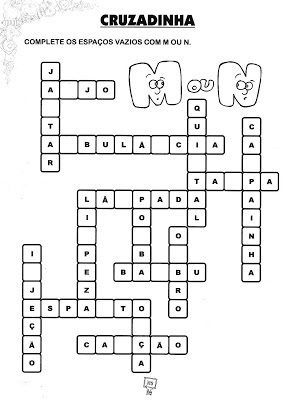


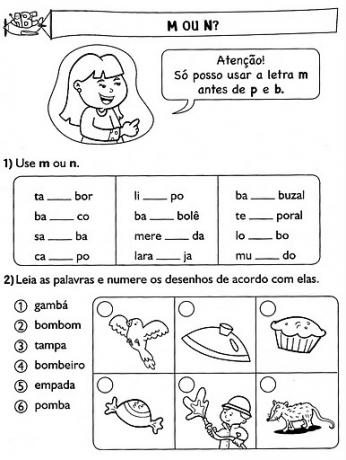
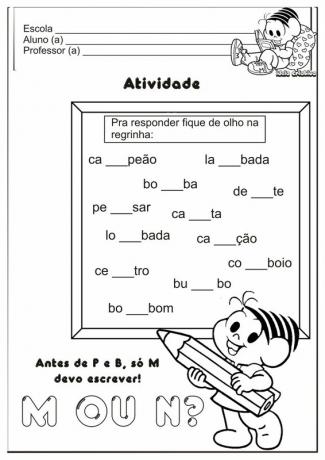
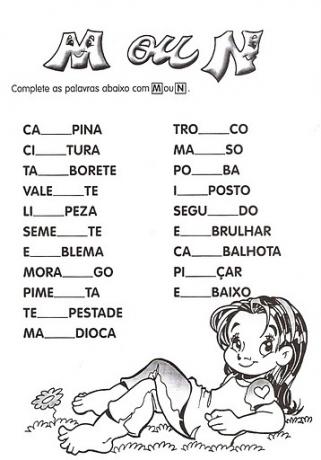
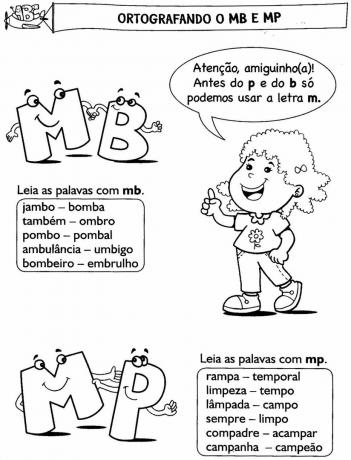

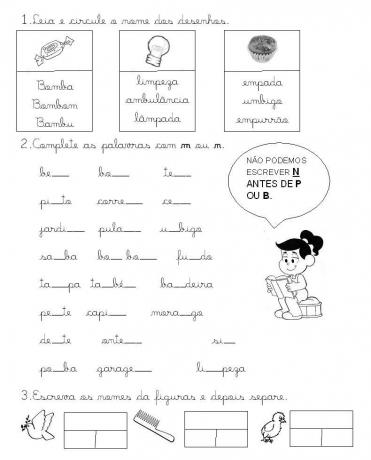

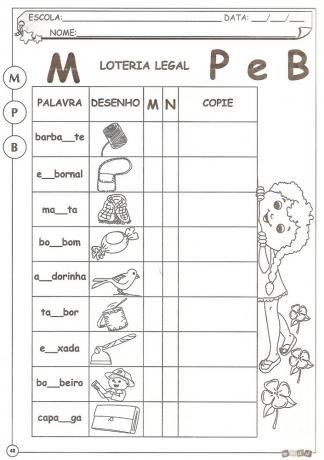


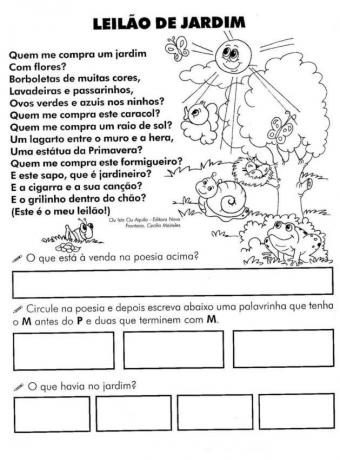
Did you like it? Share this post on your social network
 Activities on the Textual Genre Advertising
Activities on the Textual Genre Advertising
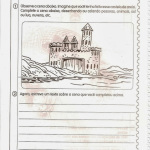 5th year text production activities
5th year text production activities
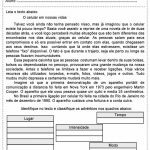 ACTIVITY IDEAS ABOUT ADVERBES
ACTIVITY IDEAS ABOUT ADVERBES
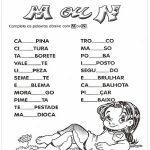 Activities to Complete with M or N
Activities to Complete with M or N
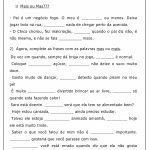 ACTIVITY IDEAS ABOUT BUT AND MORE
ACTIVITY IDEAS ABOUT BUT AND MORE
 Portuguese activities for the 5th year of elementary school
Portuguese activities for the 5th year of elementary school
This site uses Akismet to reduce spam. Learn how your comment data is processed.